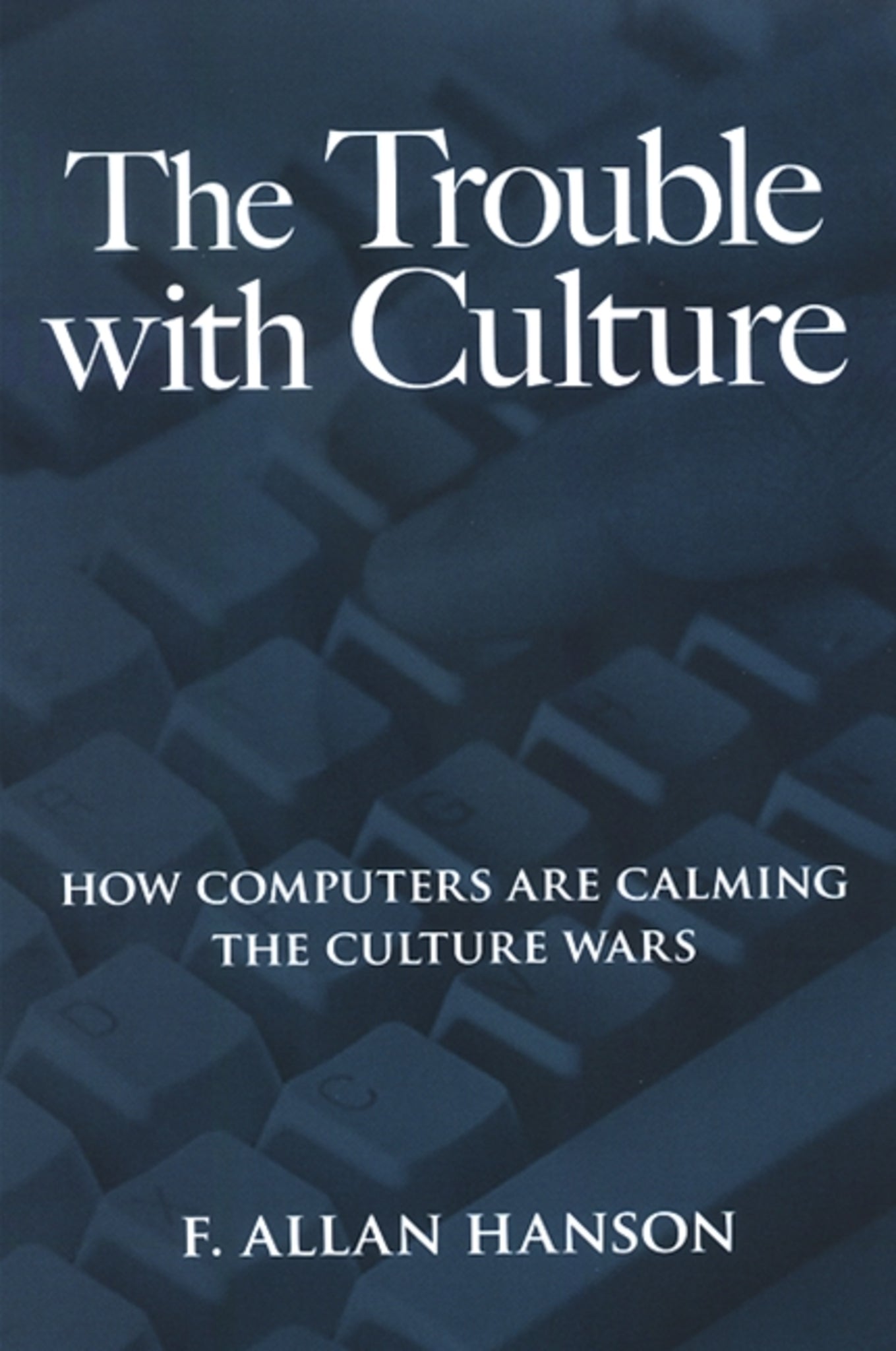We're sorry. An error has occurred
Please cancel or retry.
The Trouble with Culture

Some error occured while loading the Quick View. Please close the Quick View and try reloading the page.
Couldn't load pickup availability
- Format:
-
08 February 2007

How the computer revolution can ease polarization and help calm the culture wars.
2007 CHOICE Outstanding Academic Title
In this highly original book, anthropologist F. Allan Hanson reveals an entirely unanticipated but vital link between two of the most widely discussed features of contemporary American society: the computer revolution and the culture wars. Hanson argues that the culture wars stem from a divergence in the evolutionary paths of society and culture. Societies have evolved significantly over the last few millennia from small bands of farmers or hunter-gatherers into huge, internally diverse nation-states, while cultures-the closed systems of meanings and symbols that kept small, face-to-face societies together-have failed to keep pace. If cultures became more open, Hanson contends, then the maladaptive rupture between society and culture would be healed and the clashes that currently beset us would be greatly diminished. Interweaving lucid analysis with concrete case studies of common law, education, and other areas of contemporary life, Hanson demonstrates how the widespread use of computers is, in fact, encouraging more originality and open-mindedness, with the potential to ease polarization and calm the culture wars.


"Hanson's The Trouble with Culture is an illuminating look into how culture and automation are interconnected … Hanson has much of interest to share." — Journal of the Royal Anthropological Institute
"Hanson's book is best read as a provocative case of how a technology is changing the conditions under which we think and act. The argument is accessible and should be of interest to technologists and social scientists who are interested in how AIM can, quite apart from its content, have a significant impact on society … Hanson raises questions about the relationships between culture, technology and individual agency that are both significant and thought-provoking." — Information, Communication & Society
"…undeniably fresh, fascinating, and provocative." — American Journal of Sociology
"For all readers who ponder the potential beneficial impacts of information technology." — CHOICE
"Not only does the book forge new interdisciplinary ties, but it does so by moving effortlessly between theoretical discussions and empirical observations. The reader is constantly aware of the cultural stakes of learning to think more flexibly about our own humanity and our human ability to give the world structure and meaning. Hanson clearly cares about the topic under review and that sincerity is conveyed throughout." — Evan Selinger, editor of Postphenomenology: A Critical Companion to Ihde
"This book is a treasure, repaying readers with thoughtful analyses and provocative topics. Hanson weaves together two significant issues: on the one hand, he provides a valuable treatise on cultural theory; on the other hand, he unpacks a set of issues crucial to contemporary life." — C. Richard King, coauthor of Beyond the Cheers: Race as Spectacle in College Sport
Acknowledgments
1. Culture Gone Bad
Culture
Social and Cultural Evolution
Open and Closed Culture
Automation: A Preview
An Overview
2. Cultural Contradiction and Compartmentalization
Culture Wars
Poverty: From Making a Difference to Indifference
The Divisive Effects of Automation
3. Fixing the Trouble with Culture: Relativism, Postmodernism, and Automation
Cultural Relativism
Postmodernism
Automation
4. The Human Rage to Classify
Classifying
Classification by Correspondence
Taxonomic Classification
The Contrasting Logics of Correspondence and Taxonomy
5. Classification and the Common Law
Legal Information
"Common-placing"
Supply-Side Control versus an "Appalling Glut"
Key Numbers
Implications
Conclusion
6. Automated Classification and Indexing
Classifying and Indexing
How Automated Indexing Works
Can Artificial Intelligence Classify?
Can Artificial Intelligence Create Classificatory Schemes?
7. The Automated Mode in Principle
Internet Communication, Hypertext, and Automated Searching
Focused Searching
Open-Ended Searching
8. The Automated Mode in Practice
Automation and the Law
Scholarly Research and Education
Business and Manufacturing
9. The New Superorganic
Decentering the Individual
The New Superorganic
10. Opening Culture, Expanding Individuals
Notes
Bibliography
Index



